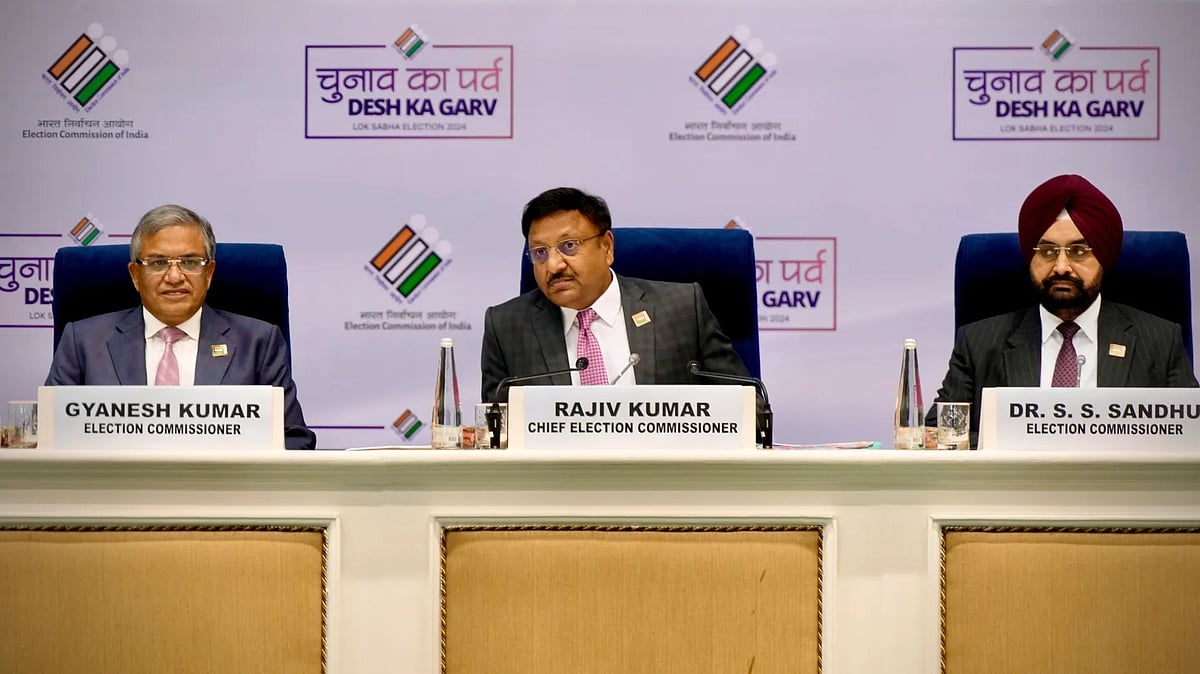Election Comission Must Prove Neutrality
Equally troubling is the claim that these questionable entries influenced the outcome in Mahadevapura, even as neighbouring segments in the same parliamentary constituency delivered different results.

Election Comission Must Prove Neutrality |
The recent allegations of large-scale voter list manipulation in the Mahadevapura Assembly segment of the Bengaluru Central Lok Sabha constituency in the 2024 elections demand the Election Commission’s urgent attention. Reports indicate that over one lakh names on the rolls may be fake—including duplicate entries across multiple booths, voters without proper addresses or photographs, and individuals ineligible to register under Form 6. Such irregularities, if proven, undermine the credibility of the entire electoral process. Equally troubling is the claim that these questionable entries influenced the outcome in Mahadevapura, even as neighbouring segments in the same parliamentary constituency delivered different results. In a democracy that prides itself on free and fair elections, even the perception of tampering erodes public trust.
There are practical and straightforward steps the Commission could take to address such concerns, instead of resorting to inapplicable rules. A special intensive revision of the Mahadevapura voters’ list, using modern verification methods, could either confirm or refute the charges. The Commission has recently revised as many as eight crore names in a single month in Bihar. By comparison, reviewing Mahadevapura’s six lakh voters should be an easy task. Failure to do so leaves unanswered questions and fuels speculation about the integrity of the process. Equally serious are structural issues. In an age when vast amounts of data can be stored and analysed instantly, the continued issuance of electronically unreadable voters’ lists appears outdated, deliberate, and unnecessary. An electronically verifiable list would make it possible to detect duplicate or suspicious entries with a single query. Furthermore, the routine destruction of polling station CCTV footage after 45 days eliminates a key safeguard. Such records should be preserved long enough to allow meaningful post-election audits. The broader pattern cannot be ignored. Allegations of irregularities are not confined to one constituency. Narrow margins in several seats, coupled with the ruling party’s overall seat advantage, raise legitimate concerns that warrant thorough and transparent review.
ALSO READ
Institutional independence is essential to resolving such doubts. Recent changes to the appointment process for election commissioners have concentrated the power of selection in the hands of the executive, reducing the role of other constitutional authorities. This makes it all the more important for the Commission to demonstrate impartiality through its actions. The Supreme Court also has a role. By directing the provision of machine-readable electoral rolls and ensuring access to preserved polling records, it can strengthen public confidence in elections. Transparency is not a concession but a constitutional obligation. India’s democratic standing rests not on the size of its electorate but on the fairness of its elections. Meeting the present challenge with openness and urgency is the Election Commission’s opportunity to reaffirm that principle. Anything less would cast a long shadow over the world’s largest democracy.
RECENT STORIES
-
-
-
-
-
